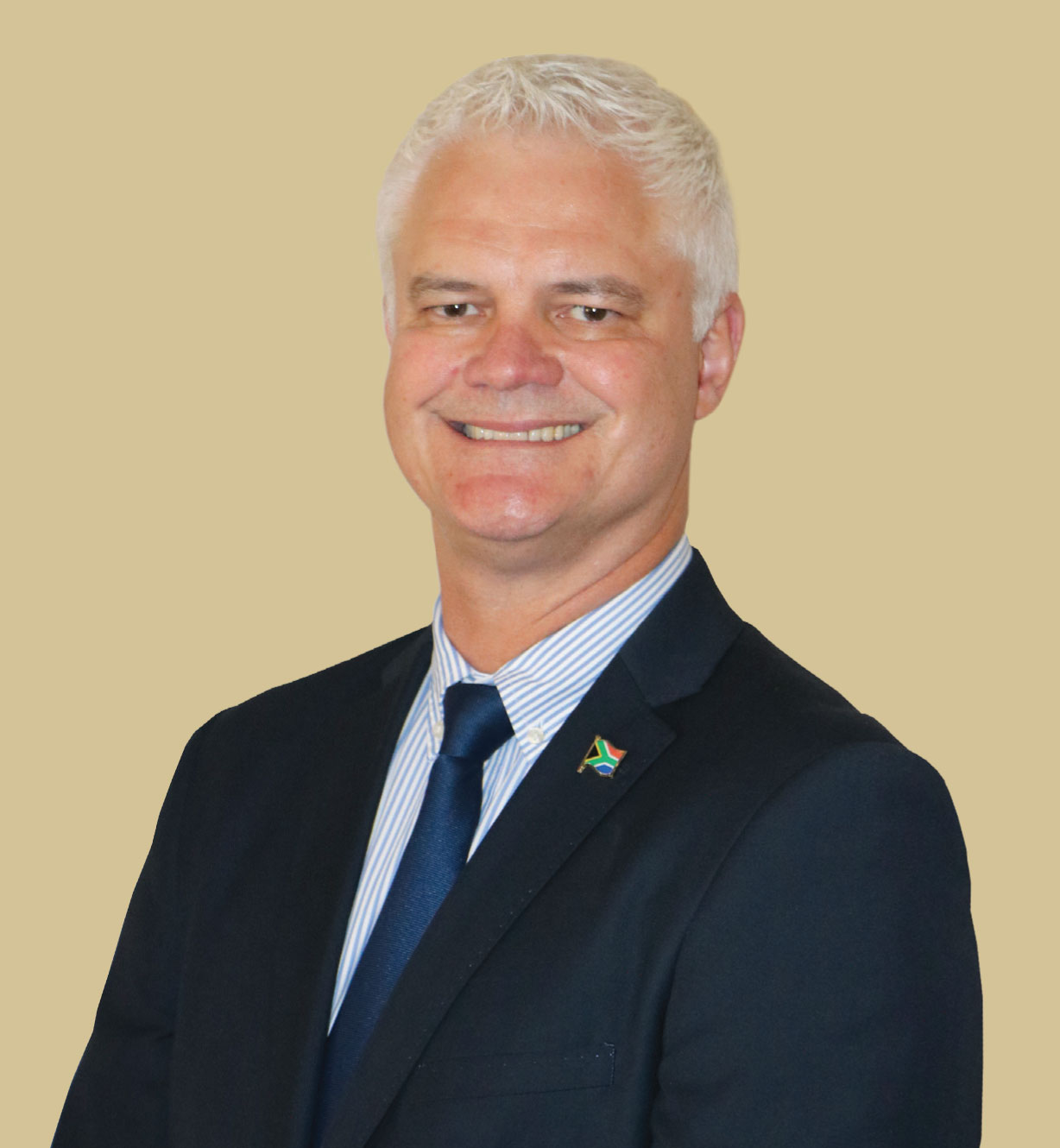
CEO, Grain SA
‘What keep producers awake at night? Producers solve problems’ is the theme for this year’s congress. Producers’ concerns are our concerns, and we will dive deep to get to the root of the issues that keep producers up at night. And we will find the solutions – because we are problem solvers.
The Executive of Grain SA’s thinking journey towards Congress kicked off with an engaging session with Clem Sunter. He shared his change drivers or ‘flags’ that will propel us towards potential future scenarios. Clem’s two main scenarios are ‘People’s Economy’ and ‘Cautionary Tale’. These two scenarios respectively represent an inclusive and successful future in which all South Africans can somehow participate in the economy or a woeful future of internal conflict, strife, poverty, and a failed state.
We spent some time contemplating the driving forces that are shaping the destiny of grain producers. Will we end up in the ‘Knersvlakte’ (place of grinding of teeth) or ‘Hoopstad’ (Hope Town)? (No offence intended to those beautiful places with their very descriptive names). These are some initial thoughts emanating from our deliberations and discussions with producers during the regional meetings.
The global economy is a big ship that drags all of us in its wake. A strong world economy always bodes well for agricultural producers as wealthier people enjoy higher protein and complex diets which, in turn, stimulate demand for grain. This wields a considerable influence on South Africa’s grain industry as we are interconnected with international trade dynamics and market fluctuations as was noted with the impact of the Ukrainian war on grain prices. The sustainability of the Chinese economy, which drove much of the economic growth and demand over the last few decades, is slowing down.
Which country will emerge as the next growth driver? America seems to be doing fine with a younger population and burgeoning small enterprise sector. Europe remains consistently (an important word) lethargic, and many observers are taking a keen interest in the Indian economic journey. Fluctuations in commodity prices, driven by global economic trends, are something else that keep producers up at night as these have a significant influence on their profitability.
The E in ESG – environment – also disturbs producers’ sleep, but in different ways. South African grain producers toil away in a weather phenomenon called ENSO (El Niño Southern Oscillation). This climate phenomenon exhibits irregular quasi-periodic variation in winds and sea surface temperatures over the tropical Pacific Ocean. It affects the climate of much of the tropics and subtropics. We grapple with recurrent droughts, floods, and irregular weather patterns, directly influencing crop yields and quality. These environmental uncertainties disrupt planting schedules, exacerbate disease and pest issues, and contribute to increased production costs for producers.
Our international European producer cousins recently took to the streets to push back on what they called a radical environmental agenda resulting in EU directives and bureaucracy which are ‘drowning them in regulations’. Producers take environmental custodianship very seriously as this is the legacy we leave our children to earn their livelihoods. Environmental radicalism and variability certainly add to producers’ restless nights.
At a local production level three flags are currently top of mind to me – infrastructure, social stability and (bio)technology.
Infrastructure is a foundational flag in the grain industry, encompassing transportation (both road and rail), harbours, water, electricity, and storage. Potholes, shallow and slow harbours, pilfered railway signalling and loadshedding cause delays, inefficiencies, additional costs and – unsurprisingly – the tossing and turning of grain producers. I am concerned about the priority of rural and agricultural infrastructure in the national discourse. Harbours and highways will enjoy national attention, but the real drivers of food cost are rural roads and sidelines, as the bulk of agricultural production is consumed locally and not exported. Every pothole adds to the cost of every meal consumed by every South African and we should watch this cost driver. Efficient infrastructure is vital to our global competitiveness which directly translates to affordable food.
One cannot farm next to a community that is hungry and angry, a producer told me recently. The political climate includes social stability and policies that significantly influence the grain industry. With the upcoming elections in mind, an element of unpredictability is introduced, potentially leading to shifts in leadership and other subsequent changes. Local leadership and accountability are crucial for effective governance and the implementation of policies that foster a conducive environment for the grain industry’s sustainable development. Faltering rural service delivery affects all of us as this frustrates local production and leave our communities destitute and desperate.
Biotechnology is a transformative flag in the grain industry, offering innovations such as genome editing of crops to enhance yield, resist pests, and tolerate adverse environmental conditions. Biotechnology can deliver ‘better’ crops more quickly in a sustainable and safe manner. While biotechnology offers promising benefits, it also raises questions about market acceptance and our regulatory framework keeping pace to make this progress available to grain producers.
Gradatim ferociter – ‘step by step, ferociously’ – is the motto for Jeff Bezos’ space venture. Yes, the change drivers are scary and might keep one up at night at times, but ’n boer maak ’n plan. Step by step, ferociously, towards Hoopstad and away from a Knersvlakte.












